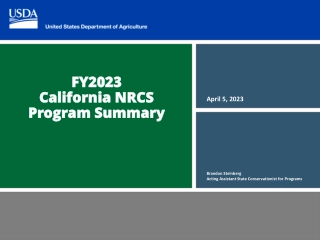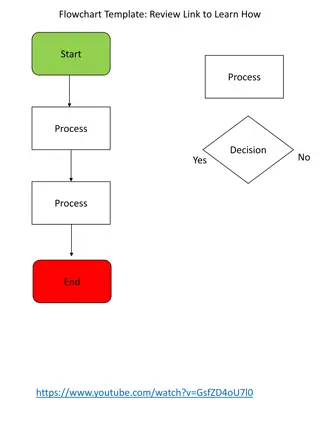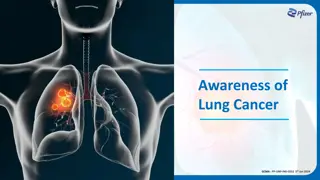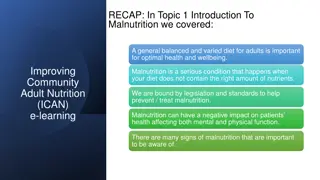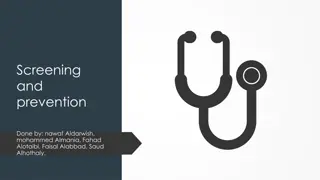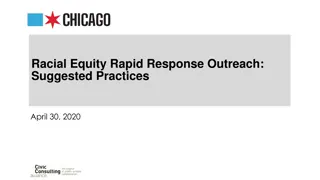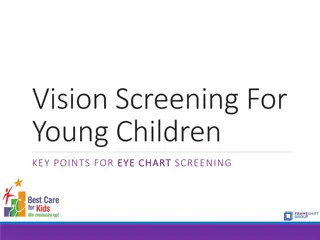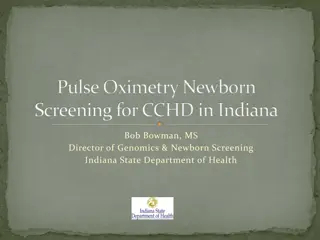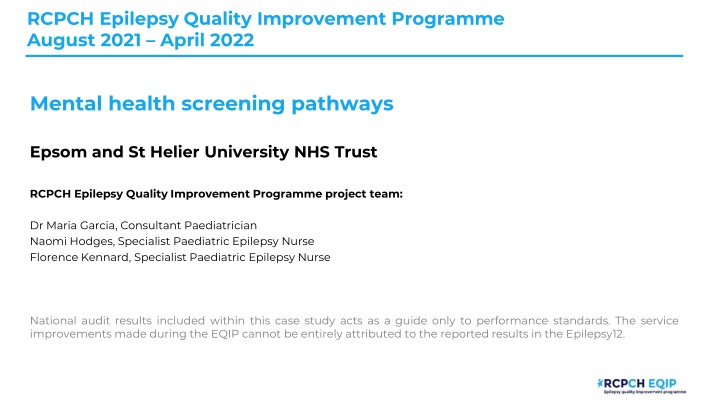
Improving Mental Health Screening for Epilepsy Patients at Epsom and St Helier NHS Trust
"Learn about the initiative at Epsom and St Helier University NHS Trust to enhance mental health screening for young epilepsy patients. Explore the project's aim, changes made, baseline measures, and future goals for better patient care." (300 characters)
Download Presentation

Please find below an Image/Link to download the presentation.
The content on the website is provided AS IS for your information and personal use only. It may not be sold, licensed, or shared on other websites without obtaining consent from the author. If you encounter any issues during the download, it is possible that the publisher has removed the file from their server.
You are allowed to download the files provided on this website for personal or commercial use, subject to the condition that they are used lawfully. All files are the property of their respective owners.
The content on the website is provided AS IS for your information and personal use only. It may not be sold, licensed, or shared on other websites without obtaining consent from the author.
E N D
Presentation Transcript
RCPCH Epilepsy Quality Improvement Programme August 2021 April 2022 Mental health screening pathways Epsom and St Helier University NHS Trust RCPCH Epilepsy Quality Improvement Programme project team: Dr Maria Garcia, Consultant Paediatrician Naomi Hodges, Specialist Paediatric Epilepsy Nurse Florence Kennard, Specialist Paediatric Epilepsy Nurse National audit results included within this case study acts as a guide only to performance standards. The service improvements made during the EQIP cannot be entirely attributed to the reported results in the Epilepsy12.
Mental health screening Epsom and St Helier University NHS Trust Project aim To develop a standardise screening tool to identify the mental health status of our patients. Background The Epsom and St. Helier University NHS Trust would like to improve the way mental health care, including learning and educational issues in young patients with epilepsy, is detected and cared for. As a group of clinicians delivering a service, to optimise the currently available resources with a view to improving the service for the patients and families and demonstrate the need for additional or a different form of service or resource. The team has devised a method of assessing all patients with epilepsy, or presumed and diagnosed epilepsy, for issues of mental health and learning difficulties. Area of focus Find or devise a screening tool that is easily administered within the time and personnel resource constraints we have. Devise a method of referring to and applying the support tool or treatment delivery. Devise a method of measuring the efficacy of the tool. Quantify and cost the shortfall in services, the additional cost, and the risk if not available.
Mental health screening Epsom and St Helier University NHS Trust Changes The team researched the screening tools already in place within the epilepsy community to ascertain which would be most suitable to use for their patients and identified the Strengths and Difficulties Questionnaire (SDQ) and HEADS-ED as potential screening tools. Research was conducted on local mental health services available within the area, including those within schools and CAMHS. It was important that the team feel they can offer suitable support for the children and young people who need it based on their screening tool results. The team planned to engage with their patients and families to capture their thoughts on the need for a screening tool and their preference for how it is completed, i.e., a conversation with a member of the team outside of the clinic, an online form they can fill out in their own time, or a paper form. The team kept track of how many patients were being captured using the screening tool; this will also have information on the results of their score . Using the screening tool (i.e. a single piece of paper) and clinic lists (which were already being used for other things) to keep track of patient scores. We re trying not to add much admin to already busy clinic slots. Initially, only new patients were screened to pilot the tool, but it was discovered that this offered only low numbers to trial and track.
Mental health screening Epsom and St Helier University NHS Trust Baseline measures Aim status
Mental health screening Epsom and St Helier University NHS Trust Process map of pathway
Mental health screening Epsom and St Helier University NHS Trust Cause and effect diagram of barriers within pathway
Mental health screening Epsom and St Helier University NHS Trust Results of local data collected was not available at the time completion of the project Visual presentation of team project intervention Team poster Team video presentation
Audit results cohort 3/4 - Ability to Refer Epsom and St Helier University NHS Trust NICE Clinical Guideline 137 states that children and young people should have access to: Written and visual information , Counselling services , Information about voluntary organisations , Epilepsy specialist nurses In 2022, Epsom and St Helier paediatric epilepsy service were able to refer CYP for Clinical psychology assessment to either within or outside their Trust. 2018 2019 2020 2021 2022 Can your trust refer to any of the following where required, either within or outside of your trust? 2021 - SWTPEG 2021- England & Wales 2022 SWTPEG 2022- England & Wales No No No No Yes 25% 78% 50% 80% Clinical psychology assessment Psychiatric assessment Yes Yes Yes Yes Yes 75% 90% 75% 90% No No No No No 12% 44% 13% 45% Educational psychology assessment Neuropsychology assessment No No No No No 25% 51% 25% 50% Yes Yes Yes Yes Yes 62% 85% 75% 87% Formal developmental assessment None No No No No No 25% 7% 13% 5%
Audit results cohort 3/4 - Ability to Screen Epsom and St Helier University NHS Trust The Epsom and St Helier paediatric epilepsy service in 2022 routinely, formally screen for mental health disorders using screening questionnaires in 2022. Does your paediatric service routinely, formally screen for any of the listed diagnoses related to epilepsy? 2018 2019 2020 2021 2022 2021 - SWTPEG 2021- England & Wales 2022 SWTPEG 2022- England & Wales Attention deficit hyperactivity disorder (ADHD) No No No No No 25% 17% 38% 16% Autism spectrum disorder (ASD) No No No No No 25% 16% 38% 17% Mental health disorders No No No No Yes 25% 17% 50% 20% None Yes Yes Yes Yes No 62% 76% 38% 74% Are any particular screening questionnaires used? 2019 2020 2021 2022 2021 - SWTPEG 2021- England & Wales 2022 SWTPEG 2022- England & Wales Strengths & Difficulties Questionnaire (SDQ) No No No No 25% 10% 25% 12% Other No No No Yes 7% 6% 38% 9% None No No Yes No 38% 53% 25% 60%
Audit results cohort 3/4 - Referral Pathways - Epsom and St Helier University NHS Trust The Epsom and St Helier paediatric epilepsy service continues to provide agreed referral pathways for children with Anxiety, Depression, Mood Disorder mental health concerns. Does the trust have agreed referral pathways for children with mental health concerns? 2019 2020 2021 2022 2021 - SWTPE G 2021- England & Wales 2022 SWTPE G 2022- England & Wales Anxiety Yes Yes Yes Yes 75% 60% 75% 64% Depression Yes Yes Yes Yes 75% 60% 75% 65% Mood Disorder Yes Yes Yes Yes 75% 59% 75% 63% Non-epileptic attack disorder Yes Yes Yes Yes 62% 44% 50% 52% Other No No No No 0% 5% 13% 7% None No No No No 12% 34% 13% 30%
Audit results cohort 3/4 - Agreed Referral Criteria Epsom and St Helier University NHS Trust The Epsom and St Helier paediatric epilepsy service continues to provide agreed referral criteria for children with ADHD, ASD, Developmental Coordination Disorder and Intellectual disability neurodevelopmental problems. Does your trust have agreed referral criteria for children with neurodevelopmental problems? 2019 2020 2021 2022 2021 - SWTPEG 2021- England & Wales 2022 SWTPEG 2022- England & Wales Attention deficit hyperactivity disorder (ADHD) Yes Yes Yes Yes 75% 77% 88% 82% Autism spectrum disorder (ASD) Yes Yes Yes Yes 75% 81% 88% 86% Behaviour difficulties No No No No 62% 60% 75% 68% Developmental Coordination Disorder Yes Yes Yes Yes 38% 60% 38% 65% Intellectual disability Yes Yes Yes Yes 50% 58% 50% 61% Other No No No No 0% 8% 0% 8% None No No No No 12% 15% 13% 12%
Audit results cohort 3/4 - Appropriate Assessment Epsom and St Helier University NHS Trust The percentage of CYP with evidence of the following at first paediatric assessment for Neurological examination increased from 89% in 2021 to 91% in 2022, meeting national average results. Percentage of CYP with evidence of the following at first paediatric assessment: 2019 2020 2021 2022 2021 - SWTPEG 2021- England & Wales 2022 SWTPEG 2022- England & Wales Neurological examination - 93% 89% 91% 93% 89% 97% 91% Description of developmental, learning, or schooling progress - 40% 49% 89% 81% 85% 89% 84% Consideration of emotional or behavioural problems (Aged 3yrs+) - 33% 34% 55% 67% 73% 71% 70%
Mental health screening Epsom and St Helier University NHS Trust Challenges The team found the two potential screening tools challenging to use. The HEADS-ED tool allows for open conversation but will be time-consuming and relies on a safe space for children to talk. The SDQ can be completed outside of the clinic and the results sent automatically to the team, but there is a cost implication, and it would be difficult to complete for children with neuro-disabilities. It has been challenging for the team to meet together in one place during the EQIP because they are a cross- site team, partly due to annual leave work patterns and clinical demands. However, the team felt progressing their project was really important and continued to communicate as a team where possible. Cross-site working has been challenging when trying to figure out what will work best at each site and keep it consistent so that the measures are the same. The team was used to producing run charts but was unsure of how to demonstrate their progress, i.e, before zero patients were screened. The result is all patients over 5 being screened. The team began thinking about what they can offer to those who do have problems and how they can find a way of capturing ongoing patients. However, the issue they have discovered is that these patients are offered much shorter appointments, and the team does not have the allocated time for them.
Mental health screening Epsom and St Helier University NHS Trust Outcomes The team previously experienced being unable to collate information on the mental health needs of their patients. Since the EQIP, the service has gained a better understanding of their patients support needs. Despite the challenges experienced by the team on the programme, they were still able to form strong teamwork and enthusiasm from all working on their project. The team has continued to fill out Heads ED forms every time a new patient is seen. Eight patients have been captured, and two of those have significant mental health problems. One or two had minor mental health problems, and the rest were not affected by mental health problems. National audit results in 2022 showed they were able to refer CYP for clinical psychology assessments to either within or outside their Trust. In 2022, routinely, formally screen for mental health disorders using screening questionnaires. o The percentage of CYP with evidence of the following at first paediatric assessment for neurological o examination increased from 89% in 2021 to 91% in 2022, meeting national average results.
Mental health screening Epsom and St Helier University NHS Trust Lessons learnt QI can be performed in short, quick cycles, and information that may appear negative can still be useful. Adjust or abandon project aims or goals quickly if something isn t working and save time. As you begin to progress your interventions, you might receive results you didn t expect - and some you might not want. Don t reinvent the wheel; use what s already available. Different teams in different hospitals work differently, so communication is key, as is being flexible where possible. Improving areas of mental health is a can of worms that needs opening. Visual presentation of team project intervention Team poster Team presentation video
https://eqip.rcpch.ac.uk eqip@rcpch.ac.uk @RCPCHEQIP

